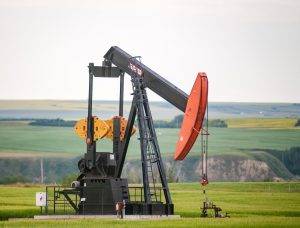What Are The Tax Breaks Of Investing In Oil And Gas? Is It Worth It?

Investing is a pathway to financial growth, offering the potential to multiply wealth. Yet, beyond the prospect of economic expansion, certain investments offer additional perks, such as tax benefits. A prime example is investing in oil and gas, where the allure extends beyond profits. This article delves into the realm of oil and gas investment tax benefits, scrutinizing whether the advantages outweigh the risks.
How Investing in Oil and Gas Affects Your Taxes
Investing in oil and gas introduces a distinctive set of tax implications, offering multifaceted benefits that savvy investors can leverage to enhance their financial strategy. The key components of these tax advantages include intangible drilling costs (IDCs) and tangible drilling costs, creating a landscape where deductions contribute significantly to overall returns.
Intangible Drilling Costs (IDCs)
IDCs represent a pivotal aspect of the tax benefits associated with oil and gas investments. Encompassing expenses such as labor, chemicals, and miscellaneous items, IDCs are not only critical to the initial phases of drilling but also serve as a substantial tax deduction. What sets IDCs apart is their 100% deductibility in the year they are incurred, regardless of whether the well achieves production. This immediate and complete deduction provides investors with a powerful tool for reducing their taxable income, enhancing the overall attractiveness of oil and gas ventures.
Tangible Drilling Costs
In tandem with IDCs, tangible drilling costs contribute to the tax advantages linked to oil and gas investments. These costs pertain to the direct expenses associated with drilling equipment, representing a significant portion of the overall investment. While tangible drilling costs are also fully deductible, the distinction lies in the timeframe over which this deduction occurs. Spread over seven years, this depreciation schedule aligns with the expected operational life of the drilling equipment. Although the deduction occurs over time, it remains a valuable avenue for reducing taxable income and optimizing the financial outcome for investors.
Active Income Classification
One of the defining features of the tax benefits in oil and gas investments is the classification of these deductions as active income. This categorization holds strategic significance, as it allows investors to offset net losses against other forms of income. Whether it be wages, interest, or capital gains, the ability to actively offset losses enhances the overall financial flexibility of investors engaged in oil and gas ventures.
Strategic Use of Tax Benefits
Understanding the nuances of these tax benefits is pivotal for investors aiming to optimize their financial strategy. The immediate deductibility of IDCs and the depreciation schedule for tangible drilling costs offer a strategic toolset. Investors can strategically time and structure their investments to maximize deductions, aligning with their broader financial objectives. This nuanced approach to tax planning makes oil and gas investments not only financially rewarding but also tax-efficient.
Is the Tax Benefit Worth It?
Determining the worthiness of tax benefits in oil and gas investments involves a nuanced evaluation. To make an informed decision, consider your financial goals, risk tolerance, and the potential for substantial tax deductions. The complexity of the tax code about oil and gas requires a deep understanding to maximize benefits. For investors seeking long-term wealth accumulation and open to navigating the intricacies of tax laws, the allure of tax benefits in oil and gas investments can be a compelling proposition.
What Other Benefits Do You Get from Investing in Oil and Gas?
The multifaceted advantages of investing in oil and gas extend far beyond the realm of tax benefits, encompassing a spectrum of operational and financial perks that enhance the overall appeal of these ventures.
1. Small Producer Tax Exemptions (Depletion Allowance)
One standout benefit is the small producer tax exemption, commonly referred to as the “depletion allowance.” This provision allows entities, particularly smaller ones, to exclude 15% of gross income from taxation. For smaller producers, this exemption becomes a catalyst for growth and profitability, creating a favorable financial environment. It serves as a powerful incentive, encouraging smaller entities to participate in the industry, and fostering a dynamic landscape of growth and economic resilience.
2. Operational Advantages and Growth Opportunities
Beyond financial benefits, investing in oil and gas unlocks operational advantages that contribute to the overall appeal. The industry’s nature provides investors with the potential for substantial returns, especially when coupled with effective operational strategies. The cyclical nature of the oil and gas market presents opportunities for savvy investors to capitalize on price fluctuations and market dynamics, fostering a climate of growth and wealth accumulation.
3. Lease Costs and Further Deductions
Lease costs, covering rights acquisition and administrative expenses, emerge as another avenue of advantage for investors. These costs are not only vital components of the operational framework but also offer additional deductions over the life of the lease. Capitalizing on these deductions contributes to the overall financial efficiency of the investment, aligning with a strategic approach to wealth accumulation.
In essence, the synergy of tax advantages, operational perks, and growth opportunities positions oil and gas investments as a well-rounded option for investors seeking a comprehensive and dynamic portfolio.
Are There Downsides to Oil and Gas Investments?
While the allure of tax benefits is compelling, acknowledging and understanding the inherent risks in oil and gas investments is paramount for prospective investors. A balanced assessment of potential downsides is crucial for informed decision-making in this dynamic sector.
1. Price Volatility and Global Influences
Oil and gas investments are inherently susceptible to price volatility influenced by global events and geopolitical factors. Fluctuations in commodity prices can introduce uncertainties, impacting the financial performance of investments. It requires investors to adopt a vigilant approach, staying abreast of global developments that may influence market dynamics
2. Geological Variations and Production Uncertainties
The geological nature of oil and gas exploration introduces inherent uncertainties in production outcomes. Variations in subsurface conditions can impact the success of drilling efforts, requiring investors to navigate the complexities of exploration and extraction. A realistic assessment of these uncertainties is crucial for managing expectations and optimizing risk management strategies.
- Regulatory Complexity and Evolving Landscape
Navigating the intricacies of the oil and gas industry’s regulatory landscape can pose challenges for investors. The sector is subject to continuous regulatory changes and evolving environmental considerations. Staying compliant and adapting to regulatory shifts demand a proactive and informed approach, underscoring the need for thorough due diligence before entering the market.
Is It A Good Idea to Invest in Oil and Gas?
The decision to invest in oil and gas necessitates a comprehensive evaluation of financial objectives, risk appetite, and industry dynamics. Beyond the allure of tax benefits, conducting thorough research and seeking advice from financial advisors are imperative. Understanding market trends, geopolitical influences, and regulatory shifts enhances the ability to make informed decisions. For those willing to engage in strategic planning, oil and gas investments can offer a unique blend of financial rewards and tax advantages, aligning with a well-informed investment strategy.
How Much Would You Need to Get Started?
Contrary to the misconception that oil and gas investments demand a vast fortune, the entry threshold varies, accommodating diverse budget ranges. Direct ownership, partnerships, and mutual funds provide flexibility for investors with different financial capacities. This inclusivity allows individuals to participate in the oil and gas sector based on their preferences and financial goals. The key lies in understanding the diverse investment vehicles available and aligning them with your financial capacity and investment objectives.
Oil and Gas Can Be A Good Investment Option – Conclusion:
In conclusion, oil and gas investments present a unique blend of wealth-building opportunities and tax benefits. While risks exist, strategic planning and a thorough understanding of the tax implications can make it a lucrative endeavor. For those seeking diversification and intrigued by the allure of tax advantages, exploring the potential of oil and gas investments might prove to be a worthwhile venture.

